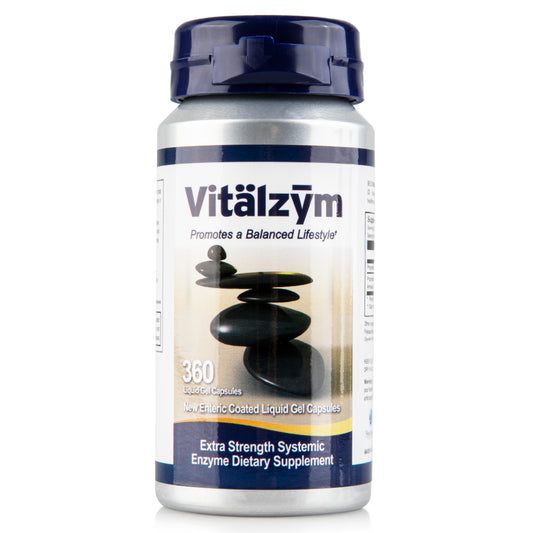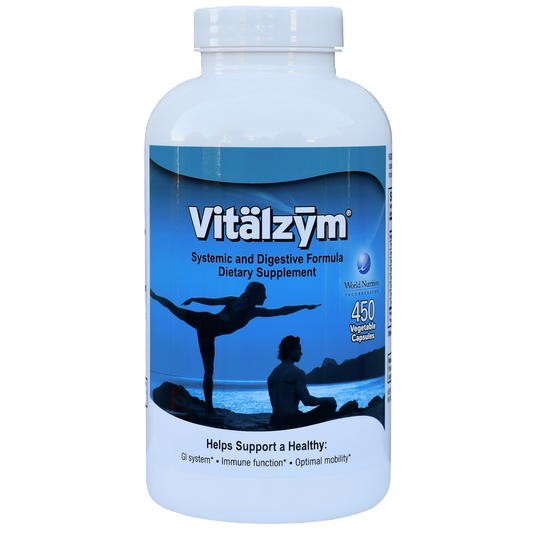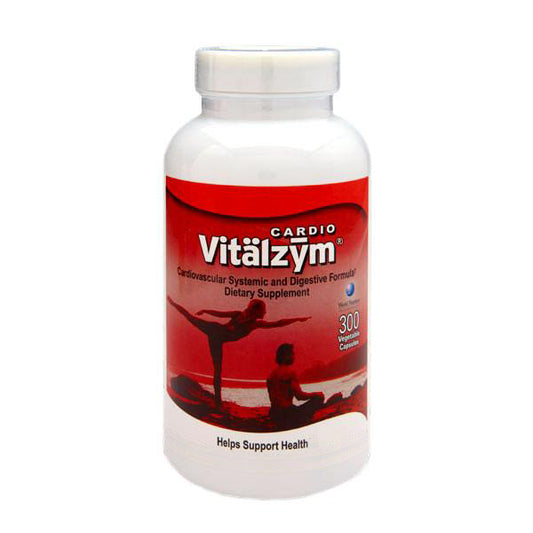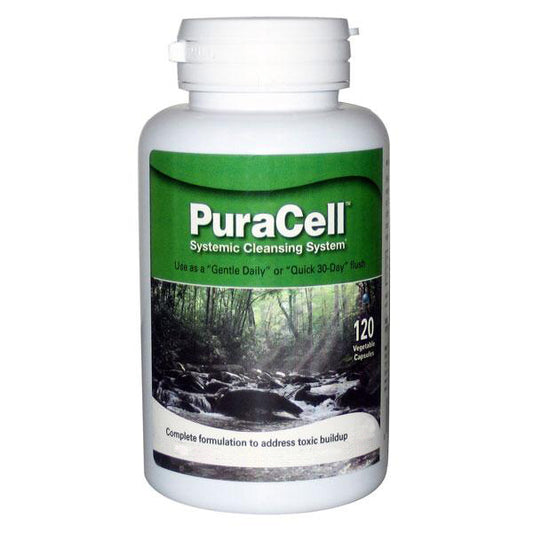In 1996, inspired by decades of clinical studies, Mr. Hirooka, founder of World Nutrition, hired the most elite team of scientists and medical researchers, and combined a proprietary blend of systemic enzyme complexes with other natural ingredients.
World Nutrition’s original Vitalzym (Vitalzym Original Hybrid) formula revolutionized the industry and quickly became the most popular vegetarian systemic enzyme supplement in the world.
In 2008, World Nutrition became the first company to formulate an enteric-coated, liquid filled systemic enzyme gel capsule, and introduced the superior delivery system of Vitalzym Extra Strength.

World Nutrition's office
Developing A Superior Product
In 2008, when the newly developed liquid gel capsule of Vitalzym was put onto the American market, performance was crucial. The goal was to use strict criteria to develop Vitalzym in such a way that the proportion of enzyme activity, stability, active ingredient uniformity, acid resistance, maximum bioavailability, etc., surpassed that of other systemic enzyme supplements products considered to be the best on the market at the time.
Setting higher goals for performance came with drawbacks. For example, increasing the levels of enzyme activity meant that the tablet had to become larger as well. Improving the acid resistance required a thicker tablet coating. Even having better uniformity involved a larger amount of excipients2.
Vitalzym's liquid enzyme gel capsule was developed by focusing on achieving the exact opposite. The new capsule became smaller and thinly coated yet 100% acid proof by USP standard3, capable of delivering a more uniform blend of ingredients with much fewer excipients. World Nutrition successfully eliminated as much of everything as possible, leaving only the enzymes.
Purified Proteolytic Enzymes
First, World Nutrition decided to use the highest purified enzymes in order to deliver more activity of enzymes in a smaller capsule. The purified proteolytic enzymes cannot be used under a normal condition of tableting and encapsulation because they are too active and moisture sensitive, and would break down by themselves.
So, they developed a special colloid with MCT4 which completely prevents the activation of enzymes from the moisture in the air. It also allowed the capsules to be very small without losing any enzyme activities, as well as drastically increasing the stability of the enzymes.

Controlled Production Temperature
Second, they were determined to strictly control temperature during the production. As mentioned, the purified proteolytic enzymes are very active and sensitive to moisture and heat, so heat must be regulated below a certain temperature to avoid loss of any enzymes during production. In tableting enzymes, there are a few necessary processes which require heat: granulation, tablet compression, and drying. Thus, World Nutrition chose a liquid gel capsule to eliminate the need for such potentially harmful processes.
During manufacturing, humidity and temperature was controlled in the facility with ISO Class 5 clean room4 at tight limits, typically ±2%RH and ±1°C, whereas FDA cites a temperature of 72°F (+/-3°F) and a relative humidity of 30-50%RH for manufacturing areas.
The importance of keeping the quality intact, for packaging they choose an aluminum bottle, which has a 100% gas barrier and therefore cannot be permeated by moisture in the air as plastic supplement bottles.
Meticulousness is an integral part of the Japanese culture, and because of this, the most experienced lens crafters have developed the ability to precisely determine the distortion of a sphere in microns through touch alone. They are also capable of recognizing defects by sight far more accurately than machines. Because of our strong desire to deliver only the highest quality products, we added a revolutionary procedure to the end of the process involving a final visual check of every single capsules as a precaution. Two teams of three women alternated every 20 minutes, looking carefully for any defects. If any woman spotted one, she picked it up to confirm the distortion and then removed it from the line. Throughout all of this, only two or three defective capsules were discovered in every batch of a million, but our attention to detail ensured that none of those defective capsules ever left the factory.
Meticulous Quality Control
Meticulousness is an integral part of the Japanese culture, and because of this, the most experienced lens crafters have developed the ability to precisely determine the distortion of a sphere in microns through touch alone. They are also capable of recognizing defects by sight far more accurately than machines. Because of our strong desire to deliver only the highest quality products, we added a revolutionary procedure to the end of the process involving a final visual check of every single capsules as a precaution. Two teams of three women alternated every 20 minutes, looking carefully for any defects. If any woman spotted one, she picked it up to confirm the distortion and then removed it from the line. Throughout all of this, only two or three defective capsules were discovered in every batch of a million, but our attention to detail ensured that none of those defective capsules ever left the factory.
- An enteric coating is a polymer barrier applied to oral medication that prevents its dissolution or disintegration in the gastric environment.
- An excipient is a substance formulated alongside the active ingredient of a medication such as glidants, lubricants, binders, anti-adherents, coatings, preservatives, etc.
- http://www.usp.org/sites/default/files/usp/document/harmonization/gen-method/q02_pf_ira_31_2_2005.pdf
- https://academic.oup.com/jn/article/132/3/329/4687297
- ISO Class 5 facility is considered a high-grade cleanroom and is typically required for aseptic applications such as sterile filling of pharmaceutical products into containers, for example. It allows up to 100,000 particles of 0.1µm and up to 3,520 particles of 0.5µm per m3. An ISO Class 5 cleanroom equates to EU GMP class A and B, and BS 5295 Class E and F.






